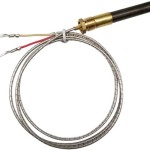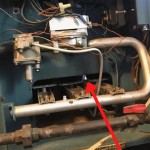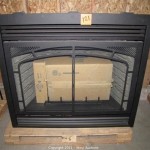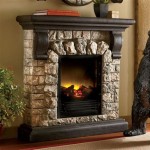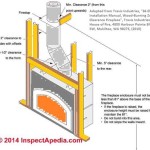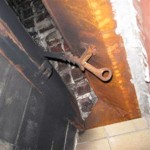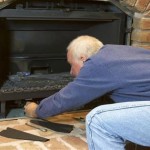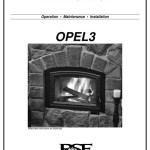Fireplace Vent Fan: Essential Aspects for Optimal Functioning
A fireplace vent fan is a crucial component for maintaining a clean and safe indoor environment when using a wood-burning fireplace. It helps circulate air throughout the room, removing smoke, odor, and airborne particles that can be harmful to your health and well-being.
Here are the essential aspects of a fireplace vent fan that you should be aware of:
1. Fan Power
The fan power, measured in cubic feet per minute (CFM), determines the volume of air the fan can move. Generally, higher CFM is desirable to effectively exhaust smoke and other pollutants from the room. However, it is important to consider the size of the room and fireplace in choosing the appropriate CFM.
2. Fan Speed Settings
Fireplace vent fans typically offer multiple fan speed settings, allowing you to adjust the airflow according to your needs. Lower speed settings are suitable for maintaining a comfortable ambiance while the fire is burning, while higher speeds can be used when you want to quickly clear smoke or odors.
3. Noise Level
The noise level of the fan is an important consideration, especially if you intend to use the fireplace frequently. Look for fans with a low noise level in decibels (dB) to ensure that it does not disrupt your relaxation or conversations.
4. Installation Type
Fireplace vent fans can be installed either as a freestanding unit or integrated into the fireplace mantel or ceiling. Freestanding units are more portable and can be easily positioned as needed, while integrated fans offer a more seamless and aesthetic appearance.
5. Additional Features
Some fireplace vent fans come with additional features such as built-in thermostats, remote controls, and timers. Thermostats automatically adjust the fan speed based on the fireplace temperature, while remote controls allow you to change settings from a distance. Timers can be programmed to turn the fan on or off at specific times.
Conclusion
Choosing the right fireplace vent fan can greatly enhance the enjoyment and safety of your fireplace. Consider the essential aspects outlined above to find a fan that is suitable for your room size, fireplace type, and desired features. Regular maintenance and cleaning of the fan will ensure its optimal performance and extend its lifespan.

How Chimney Fans Work The Blog At Fireplacemall

Why Should I Get A Fireplace Blower For My Masonry

Fireplace Efficiency Blowers And Why You Should Have One

Ventilation Fans Davis Chimney Services Serving Beaumont

Noisy Gas Fireplace Blower Here S How To Replace It Diy

Fireplace Blower Fans What You Need For Heat Full Service Chimney

How To Replace Your Rsf Fireplace Blower Fan

Fireplace Blowers Explained How Fans Work Regency

Installing A Fireplace Blower Gfk4 Gfk4a In Heatilator Natural Gas

China Factory Good Quality Fan 12v Air Curtain Sensor Tangential Blower For Fireplace Cross Flow Made In Com
Related Posts

